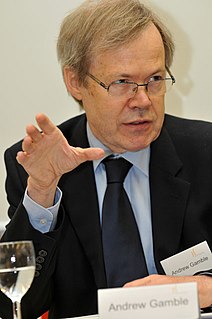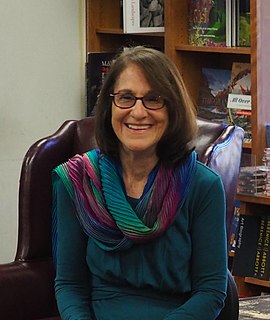A Quote by Andrew Gamble
Our fate is something which exists outside ourselves, and which once revealed expresses the meaning of our lives. Apart, however, from soothsayers who claim to have a means of foretelling exactly what will befall us, this kind of fate is only normally revealed after a life has ended. Only then can the meaning of that life be understood.
Related Quotes
Once we begin to feel deeply all the aspects of our lives, we begin to demand from ourselves and from our life-pursuits that they feel in accordance with that joy which we know ourselves to be capable of. Our erotic knowledge empowers us, becomes a lens through which we scrutinize all aspects of our existence, forcing us to evaluate those aspects honestly in terms of their relative meaning within our lives. . . .
Let man only approach his own self with a deep respect, even reverence for all that the creative soul, the God-mystery within us, puts forth. Then we shall all be sound and free. Lewdness is hateful because it impairs our integrity and our proud being. The creative, spontaneous soul sends forth its promptings of desire and aspiration in us. These promptings are our true fate, which is our business to fulfill. A fate dictated from outside, from theory or from circumstance, is a false fate.
The Zen Master warns: 'If you meet the Buddha on the road, kill him!' This admonition points up that no meaning that comes from outside of ourselves is real. The Buddhahood of each of us has already been obtained. We need only recognize it. Philosophy, religion, patriotism, all are empty idols. The only meaning in our lives is what we each bring to them. Killing the Buddha on the road means destroying the hope that anything outside of ourselves can be out master. No one is any bigger than anyone else. There are no mothers or fathers for grown-ups, only sisters and brothers.
What do I know about God and the purpose of life? I know that this world exists. That I am placed in it like my eye in its visual field. That something about it is problematic, which we call its meaning. This meaning does not lie in it but outside of it. That life is the world. That my will penetrates the world. That my will is good or evil. Therefore that good and evil are somehow connected with the meaning of the world.The meaning of life, i.e. the meaning of the world, we can call God. And connect with this the comparison of God to a father.
The significance of our lives and our fragile planet is then determined only by our own wisdom and courage. We are the custodians of life's meaning. We long for a Parent to care for us, to forgive us our errors, to save us from our childish mistakes. But knowledge is preferable to ignorance. Better by far to embrace the hard truth than a reassuring fable. If we crave some cosmic purpose, then let us find ourselves a worthy goal.
Man does not limit himself to seeing; he thinks and insists on learning the meaning of phenomena whose existence has been revealed to him by observation. So he reasons, compares facts, puts questions to them, and by the answers which he extracts, tests one by another. This sort of control, by means of reasoning and facts, is what constitutes experiment, properly speaking; and it is the only process that we have for teaching ourselves about the nature of things outside us.
Although our moral conscience is a part of our consciousness, we do not feel ourselves on an equality with it. In this voice which makes itself heard only to give us orders and establish prohibitions, we cannot recognize our own voices; the very tone in which it speaks to us warns us that it expresses something within us that is not of ourselves.
We do not accept a religion because it offers us certain rewards. The only thing that a religion can offer us is to be just what it, in itself, is: a greater meaning in ourselves, in our lives, and in our grasp of the nature of things...a religion exists for us only if, like a piece of poetry, it carries us away. It is not in any sense a 'hypothesis.
Dear brethren, this is exactly what we have to do, we have to pawn the present for the future. We must be satisfied to give up anything which Christ may require of us for the sake of that which is to come. Our inheritance is not on this side of Jordan. Our joy is yet to be revealed. I grant you that we have much thrown in, for the Lord is a good paymaster; but on the road to heaven he gives us only our spending money.
Human life has no meaning independent of itself. There is no cosmic force or deity to give it meaning or significance. There is no ultimate destiny for man. Such a belief is an illusion of humankind's infancy. The meaning of life is what we choose to give it. Meaning grows out of human purposes alone. Nature provides us with an infinite range of opportunities, but it is only our vision and our action that select and realize those that we desire.
But human beings fall easily into despair, and from the very beginning we invented stories that enabled us to place our lives in a larger setting, that revealed an underlying pattern, and gave us a sense that, against all the depressing and chaotic evidence to the contrary, life had meaning and value.



































